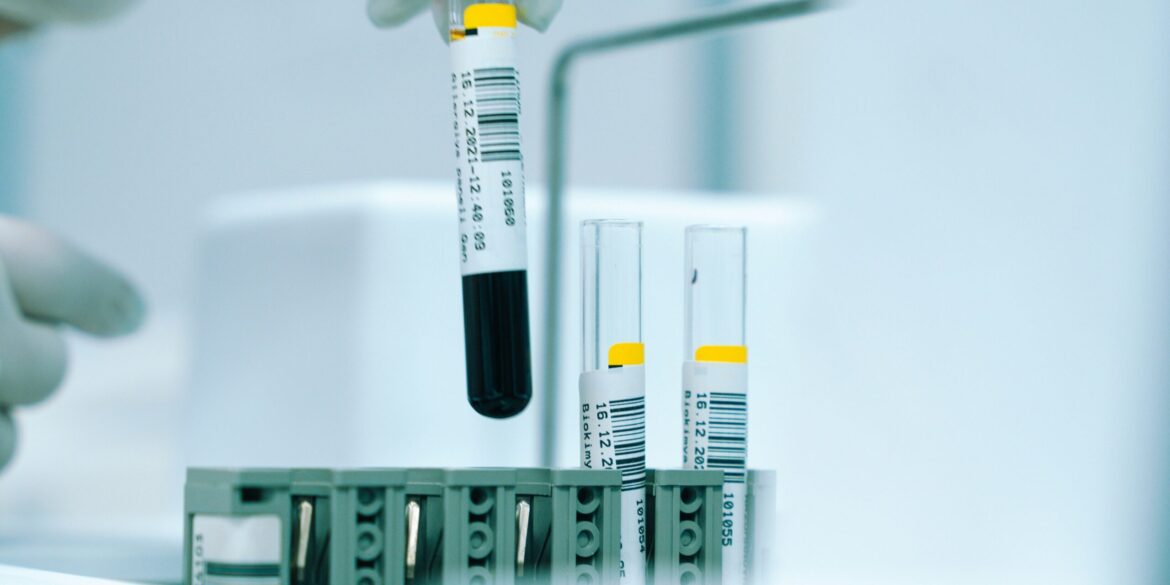In a groundbreaking advancement for cancer care, NHS England has officially rolled out a “liquid biopsy” blood test designed to detect lung and breast cancer in its early stages. This pioneering test, the first of its kind globally, marks a significant leap forward in precision medicine, offering patients a faster, less invasive way to identify genetic mutations and access personalized treatment options. By detecting circulating tumor DNA (ctDNA) in the bloodstream, the test promises to expedite treatment decisions and improve outcomes for patients, while also offering substantial cost savings to the healthcare system.
The introduction of this liquid biopsy test comes after a successful pilot program, during which it demonstrated its potential to transform the treatment landscape for patients with advanced forms of lung and breast cancer. With the test now available across NHS hospitals, it is expected to benefit approximately 15,000 lung cancer patients and 5,000 advanced breast cancer patients annually. This is a significant milestone, considering that lung and breast cancers are among the most prevalent and deadly types worldwide. Early and accurate detection of genetic mutations in these cancers is crucial for providing targeted therapies that can improve patient survival rates.
The liquid biopsy works by analyzing a simple blood sample to identify genetic mutations associated with tumors. Unlike traditional tissue biopsies, which require invasive surgical procedures to remove a sample of the tumor for testing, the liquid biopsy allows for a non-invasive approach that is both faster and less stressful for patients. By detecting ctDNA, the test can reveal critical genetic information about a tumor, enabling healthcare providers to make quicker and more informed decisions regarding the best course of treatment.
Preliminary data from the test’s pilot phase shows that it accelerates treatment decisions by an average of 16 days compared to conventional tissue biopsies. This shorter time frame is especially important in cancer care, where every day counts when determining the most effective treatment plan. In the case of lung and breast cancers, where early intervention can make a significant difference in patient outcomes, this improvement in speed could be life-saving.
The benefits of the liquid biopsy extend beyond its ability to speed up treatment decisions. Health leaders are hailing the test as a revolutionary tool that could reshape the way cancers are diagnosed and treated. Its non-invasive nature eliminates the need for painful procedures, which often involve general anesthesia and long recovery times. Patients who would typically undergo multiple rounds of invasive biopsies can now rely on a blood test that can provide crucial genetic insights with a much lower risk of complications.
Moreover, the liquid biopsy is expected to bring substantial cost savings to the NHS. Traditional tissue biopsies require hospital admissions, surgical teams, and laboratory analyses, all of which can be expensive and time-consuming. In contrast, the liquid biopsy test is less resource-intensive, potentially reducing the overall cost of cancer care while also making treatments more accessible to a wider range of patients.
The successful implementation of this blood test is also seen as a significant step toward personalized medicine, where treatments are tailored to an individual’s specific genetic profile. Personalized therapies, which are guided by the genetic mutations found in a patient’s tumor, have shown to be more effective than traditional, one-size-fits-all approaches. By enabling quicker access to these targeted therapies, the liquid biopsy could lead to better treatment outcomes and a reduction in unnecessary side effects, which often arise from less targeted treatments.
The development of the liquid biopsy blood test also aligns with a broader global trend toward minimizing the invasiveness of medical procedures. Advances in molecular biology and genetic research have paved the way for more refined diagnostic tools that can detect diseases earlier and with greater accuracy. The NHS’s move to introduce this test is part of a larger effort to modernize healthcare systems and ensure that patients receive the most efficient and effective care possible.
As the test becomes more widely available across the NHS, it is expected that it will continue to play a key role in improving cancer care. Experts believe that the use of liquid biopsies could eventually expand beyond lung and breast cancer, paving the way for broader applications in other types of cancer. This test could become an essential tool in the early detection and management of many cancer types, making it an integral part of future cancer care protocols.
Health officials have welcomed the NHS’s decision to make this technology available to patients, with some calling it a historic moment in the fight against cancer. The test’s potential to save time, reduce patient discomfort, and cut healthcare costs underscores its importance in modernizing cancer care. As the test continues to demonstrate its efficacy and value, it could become a standard part of cancer diagnosis and treatment worldwide.

